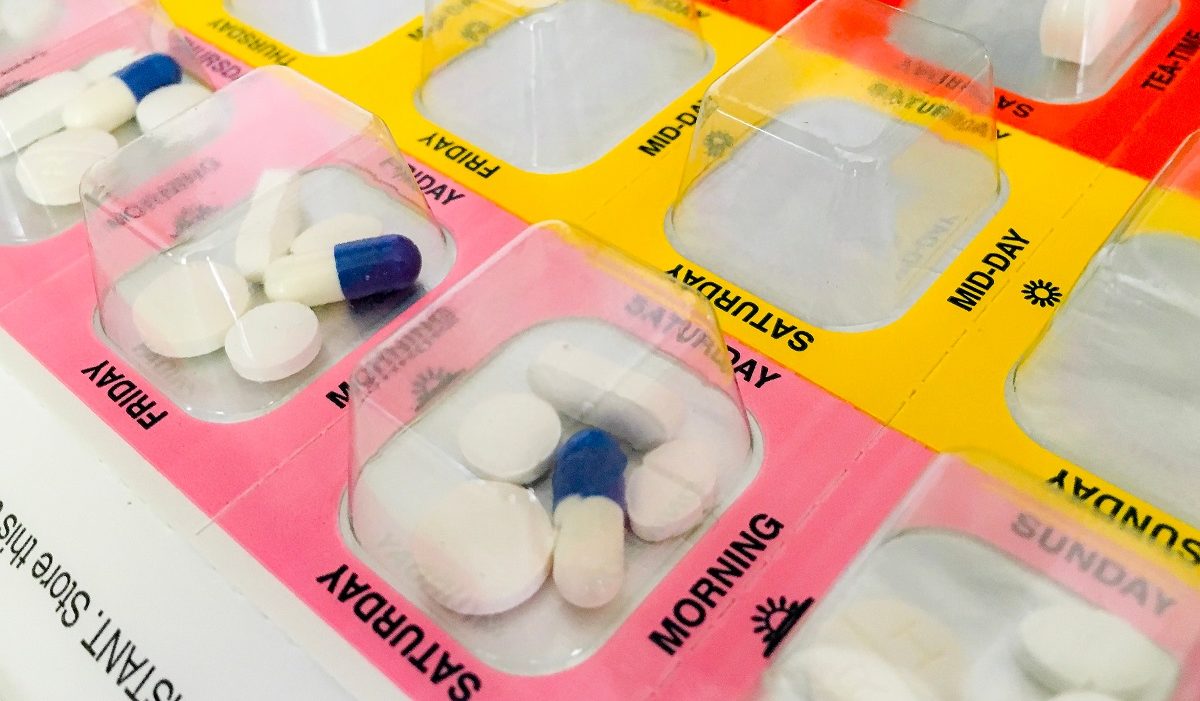
As we age, we may be required to start taking or increase the amount of both prescription and non-prescription medications. These can be an integral part of ensuring we stay healthy and fit in our later years.
Unfortunately, as we age our risk of medicine-related issues can also increase. In hospital admissions of people aged over 65 years, up to 30% are related to medicines, it’s possible that up to half of these could be prevented*. This means it’s essential to be aware of what medications you are taking and seek professional advice.
The effects of ageing
Our bodies go through changes as we age, so the way we absorb and metabolise medications can change too. This means that medications we once took with no ill effects can start to cause adverse reactions. We can become more sensitive to some medications, while not properly processing others. Our bodies can also start to have more difficulty in removing some medications from our system.
More pills to swallow
Another common issue as we get older is we will often need to take more medications. This can increase our risk in a few ways, including:
- Taking multiple medications increases the risk of contraindications between drugs.
- Taking a number of medications can also cause more undesirable side effects.
- There is also the simple fact that when you’re taking a number of medications there is an elevated risk that you can make a mistake in the dosage or when you take your medicine.
How do I safely manage my medications?
While there are some dangers when taking medications as we get older, there are simple ways we can safely take what we need to remain healthy. It’s important to be aware of what you’re taking, why you’re taking it and get the advice of a medical professional.
Keep track of your medicines
It’s important to keep a detailed list of your medications including the dosage, when you’re taking them and why you’re taking them. This list can help give you an overview of all your medications and is an easy way to share with your medical providers say if you are admitted to the hospital or need to see a specialist.
If you’re tech-savvy, there are apps available for your phone where you can store this information and easily share it. Otherwise, you can keep it in your calendar or diary.
Organise your medications
No matter what your age, we’ve all had that moment of “Did I or didn’t I take that tablet?” To help clear the confusion and ensure you take the right medication at the right time you can organise your medications into dosages for day/time. You can purchase your own dispenser container from the chemist and put your medications into it for the week ahead. Some pharmacies will also create blister packs or sachets that contain all your medications marked for the time/day you’re required to take them. This way you know exactly which medications you need to take and when you need to take them. There is also the added convenience of having all your medications in the one place. Talk to your pharmacy to see if this service is available for you.
If you’re not taking an array of medicines, you could simply set yourself a reminder on your phone or alarm clock to ensure you never miss a dose.

Ask for a medication review
We all know that a regular visit to our GP is important to keep our health on track. Part of these visits should include a review of the medications you’re taking. Let your GP know what medications you’re taking, so they can ensure you’re on the right dosage and there are no counter indications. Don’t forget to let them know if you’re taking other over-the-counter-medications or vitamins, as these can have an effect as well and is something we don’t always consider.
When you visit the pharmacy to fill a prescription, it’s always a good idea to let them know what other medications you’re taking, so they can assess if there are any potential risks.
Be aware of your symptoms
You already know that you should speak to your doctor if you develop symptoms after taking a new medication, but it’s important to note if the symptoms you’re trying to relieve are responding to the medication as well. Sometimes you will be prescribed something to help with aches and pains and in our day-to-day life it’s easy to keep taking them even when they’re not fully effective or stop working. If you’re still experiencing symptoms and you’ve been prescribed something to alleviate it, speak to your doctor. They may be able to change the dosage or prescribe something else. You never want to take more medicines that you have to.







